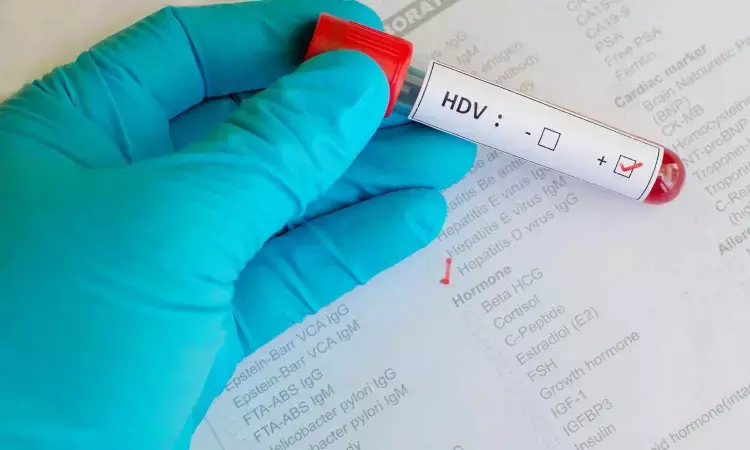- Home
- Medical news & Guidelines
- Anesthesiology
- Cardiology and CTVS
- Critical Care
- Dentistry
- Dermatology
- Diabetes and Endocrinology
- ENT
- Gastroenterology
- Medicine
- Nephrology
- Neurology
- Obstretics-Gynaecology
- Oncology
- Ophthalmology
- Orthopaedics
- Pediatrics-Neonatology
- Psychiatry
- Pulmonology
- Radiology
- Surgery
- Urology
- Laboratory Medicine
- Diet
- Nursing
- Paramedical
- Physiotherapy
- Health news
- Fact Check
- Bone Health Fact Check
- Brain Health Fact Check
- Cancer Related Fact Check
- Child Care Fact Check
- Dental and oral health fact check
- Diabetes and metabolic health fact check
- Diet and Nutrition Fact Check
- Eye and ENT Care Fact Check
- Fitness fact check
- Gut health fact check
- Heart health fact check
- Kidney health fact check
- Medical education fact check
- Men's health fact check
- Respiratory fact check
- Skin and hair care fact check
- Vaccine and Immunization fact check
- Women's health fact check
- AYUSH
- State News
- Andaman and Nicobar Islands
- Andhra Pradesh
- Arunachal Pradesh
- Assam
- Bihar
- Chandigarh
- Chattisgarh
- Dadra and Nagar Haveli
- Daman and Diu
- Delhi
- Goa
- Gujarat
- Haryana
- Himachal Pradesh
- Jammu & Kashmir
- Jharkhand
- Karnataka
- Kerala
- Ladakh
- Lakshadweep
- Madhya Pradesh
- Maharashtra
- Manipur
- Meghalaya
- Mizoram
- Nagaland
- Odisha
- Puducherry
- Punjab
- Rajasthan
- Sikkim
- Tamil Nadu
- Telangana
- Tripura
- Uttar Pradesh
- Uttrakhand
- West Bengal
- Medical Education
- Industry
Circulating HPV Tumor DNA as a Pretreatment Biomarker in Oropharyngeal Cancer: JAMA

Rettig et al presented a report using a commercially available Clinical Laboratory Improvement Amendments-approved test (NavDx [Naveris]) to measure circulating tumor tissue-modified viral (TTMV) human papillomavirus (HPV) DNA present in patients with HPV-positive oropharynx squamous cell carcinoma (OPSCC) prior to treatment. In analyzing a cohort of 110 patients, they found that TTMV HPV DNA levels were statistically significantly associated with nodal disease burden and the presence of lymphovascular invasion. Most patients did have TTMV HPV DNA detected (89%), but a subset did not have detectable DNA.
Circulating tumor DNA (ctDNA) is DNA that is shed by cancer cells that circulate in the bloodstream. The DNA can be free floating (“cell free”), exist within tumor cells in the blood, or be in fragments of cells such as exosomes. Using biochemical and genetic techniques, peripherally drawn blood can be processed to identify and sequence this DNA. While some of the DNA is just normal DNA from the host, foreign nonhost sequences like HPV DNA can be detected and measured using this technique. The term liquid biopsy has also been coined to describe this approach. The NavDx test detects such ctDNA, calling it TTMV DNA. The identification of ctDNA in HPV-positive OPSCC has been an exciting development, providing additional data for consideration in the management of patients with HPV-positive OPSCC. Recent publications have shown its potential value to predict treatment response in curative intent therapy, palliative therapy in the recurrent/metastatic setting and in posttreatment surveillance.
While the presence or absence of TTMV DNA may predict the presence or absence of HPV-positive OPSCC cancer cells, the importance of ctDNA concentration, measured as fragments/mL, in these patients is less understood.
The study by Rettig et al evaluated other potential contributors to TTMV HPV DNA levels. They examined if other tumor metabolic activity (positron emission tomography standardized update value), host genetics (sex), or markers of tumor biology (HPV subtype, lymphovascular invasion) might also contribute to the fragment concentration, with mixed results. It is also unclear why some patients with biopsy-proven disease still have undetectable ctDNA, as seen in 89% of the cohort in this study, a finding also observed in other published HPV-positive OPSCC cohorts. This is despite the fact that tumor DNA can be detected sometimes years prior to cancer development. There remain many unanswered questions in understanding TTMV DNA levels.
These considerations of pretreatment ctDNA levels are not just academic. While the survival of patients with HPVpositive OPSCC is fortunately more favorable compared with tobacco or alcohol–associated p16-negative OPSCC, a subset of patients with HPV-positive OPSCC still die of their disease. Head and neck disease teams everywhere are endeavoring, on the one hand, to de-escalate treatment intensity for favorable prognosis in HPV-positive OPSCC, while on the other hand also seeking strategies to identify patients a priori as poor responders to therapy and find alternatives. Pretreatment biomarkers like HPV TTMV DNA offer a pathway to addressing this challenge. Understanding the circumstances that drive detectable HPV TTMV DNA pretreatment will better inform treatment decisions and prognosis. Indeed, an ongoing phase 2 clinical trial is evaluating the use of pretreatment HPV TTMV DNA levels to risk-adapt patients for radiation de-escalation.
Use of HPV ctDNA as a pretreatment biomarker provides promising data to help better guide the care of patients with HPV-positive OPSCC. Source: Jeffrey C. Liu, JAMA Otolaryngology–Head & Neck Surgery doi:10.1001/jamaoto.2022.3331
Dr Ishan Kataria has done his MBBS from Medical College Bijapur and MS in Ophthalmology from Dr Vasant Rao Pawar Medical College, Nasik. Post completing MD, he pursuid Anterior Segment Fellowship from Sankara Eye Hospital and worked as a competent phaco and anterior segment consultant surgeon in a trust hospital in Bathinda for 2 years.He is currently pursuing Fellowship in Vitreo-Retina at Dr Sohan Singh Eye hospital Amritsar and is actively involved in various research activities under the guidance of the faculty.
Dr Kamal Kant Kohli-MBBS, DTCD- a chest specialist with more than 30 years of practice and a flair for writing clinical articles, Dr Kamal Kant Kohli joined Medical Dialogues as a Chief Editor of Medical News. Besides writing articles, as an editor, he proofreads and verifies all the medical content published on Medical Dialogues including those coming from journals, studies,medical conferences,guidelines etc. Email: drkohli@medicaldialogues.in. Contact no. 011-43720751


